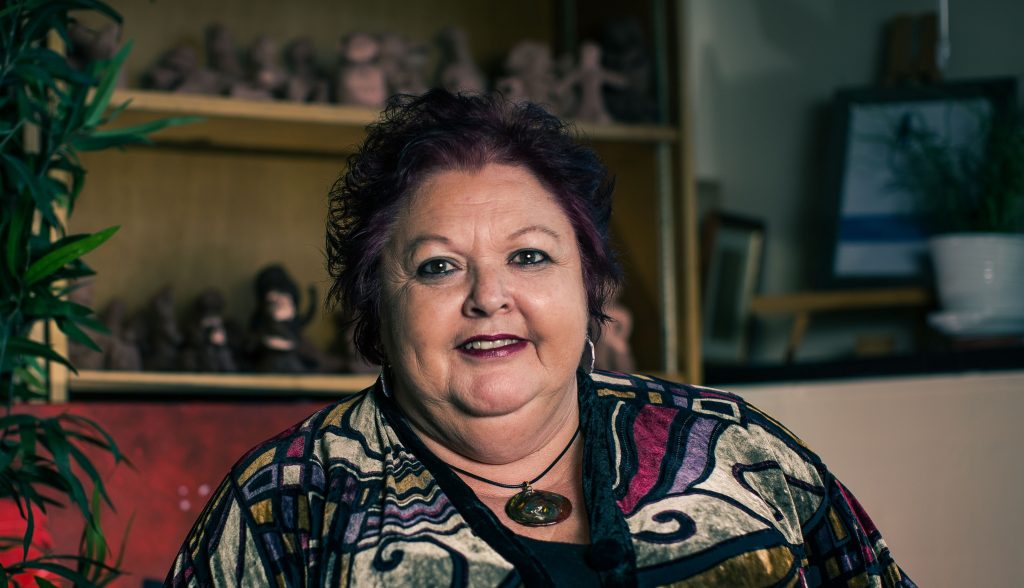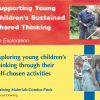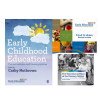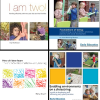How nurseries show community leadership and create happier local neighbourhoods
by Mona Sakr Nurseries are at the heart of enabling children to positively contribute to the communities they live in. Through their work with children
The Duchess of Cambridge launched The Royal Foundation Centre for Early Childhood on 18th June 2021 with a substantial report Big change starts small which identifies six areas which form an agenda for change. Described as a “golden opportunity” to make a difference to children’s lives towards a happier, more secure future, it identifies the estimated cost of the “lost opportunity” as “£16.13 billion per year in England alone”. A failure to give children, and their families, the support and services they need to thrive is hugely expensive.
The Royal Foundation Centre for Early Childhood plans three areas of activity: research, cross sector working, and raising awareness to drive change. The report and the agenda it sets out is welcome, and here I offer a brief response to the six areas for action.
“Knowledge of the importance of the early years is low. We need to increase societal understanding of the transformative impact of early childhood. We also need to change the way we think about the first five years — ensuring that emotional development is given due focus and attention by all and that caregivers have sufficient understanding and knowledge to support healthy development.” BCSS
Public awareness of the importance of the first five years is not high. But the health, well-being, and development of the youngest in our society is crucially important and should be a responsibility of all citizens. Those who work with and for young children in many different roles and services have an awareness of what babies, toddlers and young children need, yet these youngest members of our society are often the last to be thought of in many matters.
The well-known African proverb “It takes a village to raise a child” recognises that families need support, and we all have a part to play. Public education about the needs of young children, not least their need (and right) to play freely, is essential to children’s holistic development.
Public policy on all aspects of our lives, including housing, health, the economy, education, the environment, and transport, must hold children to the fore of thinking and actions need to consider their interests.
“Healthy development requires nurturing relationships, environments and experiences. We need to value the role of caregivers, to prioritise their mental wellbeing, starting in pregnancy, and to build their capacity and capability. Surrounding this we should create nurturing environments and experiences, including access to nature and outdoor space.” BCSS
Parenting young children is a huge responsibility – the most important role any adult can fulfil – and there are many examples of successful programmes to support parents. The ‘nurturing relationships, environments and relationships’ which families create are crucial to their own and their children’s well-being. Key to parent well-being is stability; when they are financially secure anxieties about keeping their home, keeping their job, and feeding their family reduce, leaving space to enjoy time with their children. Healthy parental well-being goes a long way to nurturing a happy, healthy young child, able to play, laugh and learn without worry. Home, community, and outdoor green space, and access to the Arts, are all essential to young children’s development.
“Caregivers do not exist in a vacuum; we need family-friendly communities that create non-judgemental environments, encourage help-seeking and ensure that early childhood is prioritised locally. Workplaces can also play a role, shaping a culture that supports the early years.” BCSS
One of the lessons of the pandemic, was the importance of taking care of others and showing kindness. It is still a time to take care of each other, and to celebrate those who support neighbours, friends and strangers. Taking care, means creating environments where people, from youngest to oldest, can flourish – in community and at work. We know that investment in programmes for parents, supporting them in their children’s play, growth and learning are effective. Existing programmes of support need to be extended to reach progressive universal support for all parents who want it. Maintained Nursery schools and other early years settings are often the hubs of their communities and sources of support and connection for parents – such settings do far more fulfilling than their key role of enhancing young children’s learning.
Employers must recognise that the employees of tomorrow are the children of the parents who are their employees today. Respecting the need to balance parenthood with work is an essential strategy for successful businesses which understand that employees who are parents have two important job – and one of them is bringing up the next generation. We know now that it is possible for many families to work effectively from home – if this can be done to overcome the crisis of pandemic – it can be done if there is a need for parents to take time at home when such arrangements are necessary to meet children’s needs. If working hours are more social and fitted to family needs, everyone benefits.
“There are thousands of dedicated and hardworking individuals who are committed to supporting families in the early years. We need to recognise the importance of the early years workforce and to reflect this both in the quality of training and in support for their own emotional wellbeing. Where needed, we should also encourage a more holistic view of the early years that includes emotional as well as physical needs, and provide easy access to the latest scientific research to inform practice.”
The early years education workforce has been fending off crisis for many, many years. Despite several reports over the last decade alone, little has been done to really address the need for a well-supported and highly qualified workforce. Research into child development, children’s play and early language and literacy shows children’s huge capacity to discover, to question, and to learn and how early years educators can best support their learning and development. Healthy, happy children need to play and move and laugh, and as they do so in appropriately stimulating environments with interested, responsive and well-informed practitioners, they learn. That many early years practitioners survive on the minimum wage is a travesty.
The Royal Foundation report says: “Skilled and well-supported practitioners are key to the quality of services and can make a proven difference, particularly for children from low-income and at-risk families” (p44). When it comes to early childhood education, practitioners must have access to high quality initial training – where they learn about the other professionals working with young children and begin to take their place as a multi-professional early childhood team working with and for children from birth to five, and their families. They also need ongoing, high quality Continuing Professional Development which helps they stay up to date with research and societal issues which affect young children and their families.
“Data on babies and infants are both patchy and unconsolidated. At the same time, there are gaps in research and in the implementation of best practice. We need to gather data routinely and consistently from birth onwards and find ways to share information between all those who provide care and support in the early years. We should undertake to build a more substantive body of knowledge, including psychological and behavioural science as well as longitudinal studies and economic evaluations. And where we have research, this should be used to inform programmes and practice. “
We need good data, but we do not need inappropriate, invalid and unhelpful assessments of children for the purposes of accountability alone. Data, from appropriate assessment for valid purposes, observations of children and discussions with parents which help us further support children’s growth and development, and in which policy makers will invest to develop improved services, are worthwhile, for they can lead to positive change. As well as new research we need investment in practices which have already been shown by research to be effective. Funding of practices and initiatives known to be effective is much needed.
“We need long-term commitment to building and sustaining an effective system which includes a national framework that will provide a common agenda to drive holistic and preventative early childhood support; deeper collaborative working; and a measurable child outcomes framework.“
Short-termism threatens progress and development of services, settings and innovative practices. Too often, a welcome and effective initiative is cut short because the initial funding ended, and no further sponsorship is available. Sustained, effective work with families, on a range of issue which matter to them and affect them, is much needed. We need to see such long term sustained practice, shown to be effective, receiving continued funding without the need to reinvent the wheel.
In all of this, it will be crucial to hold onto the uniqueness of every child and celebrate their individuality. If ‘a measurable child outcomes framework’ (p 46) is created for use throughout the early years, it is important that the range of development is recognised, any instrument of this kind must recognise that all children are different, they develop at different rates and have different potentials. We must be wary of any change that marginalises those children who develop at a slower rate, and which do not give due recognition to children with impairment and conditions which affect their development.
In welcoming a bold initiative to bring together all who are interested and committed to childhood, and families, we need to remember the diversity of children and families. We need to recognise multiple childhoods and families. We need to ensure that we meet children’s needs in the contexts of the cultures and heritages. We need solid, sufficient and sustained investment to ensure a better today, and tomorrow, for the youngest children and those who raise them.
“The early years are not simply about how we raise our children.
They are about the society we will become.”
The Duchess of Cambridge, June 2021
Professor Cathy Nutbrown – President, Early Education
The Royal Foundation Centre for Early Childhood (2021) Big Change Starts Small

by Mona Sakr Nurseries are at the heart of enabling children to positively contribute to the communities they live in. Through their work with children
The Families’ Access to Nature Project was undertaken by the Froebel Trust and Early Education between October 2021 and January 2022. Children, their parents, and
ICT – what’s it all about? ICT is information and communications technology. The term simply means all the technology around us, things like mobile phones,
Toddlers are very busy people. They are keen to learn about the world around them and ready to be fascinated by things that seem ordinary
Children’s curiosity about the world around them is apparent from the day they are born. Babies quickly use all their senses to explore themselves and
Reading is fun. It’s also a key skill that helps us to learn and to live our lives – so starting to read is an
What? Why? When? Where? What for? – and Why? yet again. Sometimes children’s questions just keep on coming. It can be wearing, especially if you
It’s true, maths really is everywhere, and learning about it doesn’t happen just at school or nursery. Young children have lots of important mathematical experiences
What is mark making? Mark making is the term used to describe the marks that children in their early years make on paper and is
The role of music in the early years Everyone knows how much young children love to sing and dance, but all too often music is
Children learn how to behave All children are individuals, because they are born with their own character. This is why even children within the same
Early childhood seems like a time of constant change to adults. Just as you’ve got used to a predictable daytime nap, your child decides that
Why go outside? Big movers Have you ever been in an open space with young children? The first thing they want to do is to
Young children are artists. They use all sorts of materials to show what they have noticed about the world. They might draw the rain falling
Taking care of a baby is tiring work, with a lot of feeding, nappies and broken nights. When you are exhausted, it can be harder
Here are twelve links with free ideas to support play and learning at home, suitable for early years, nursery, reception and school aged children in
It is important to include families in helping to shape your decisions in relation to developments you want to make. Families know their circumstances best
Since the introduction of the EYFS framework in 2008 there has been a huge emphasis upon encouraging parents to become engaged in their children’s learning.
Entering the unknown It was extremely hard and emotional to say goodbye to the children and parents in my Reception class at the end of






Early Education
2 Victoria Square
St Albans
AL1 3TF
T: 01727 884925
E: office@early-education.org.uk